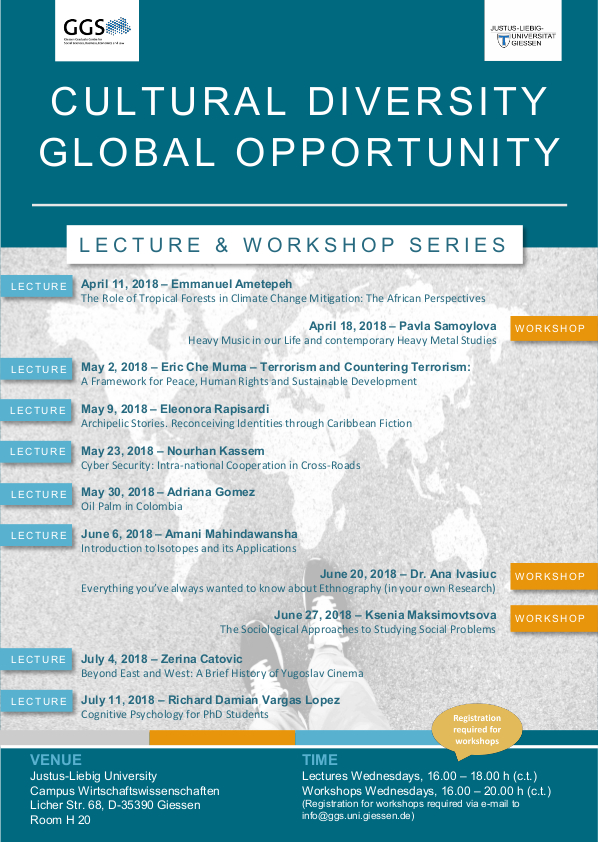Workshop: The Sociological Approaches to Studying Social Problems
a workshop by Ksenia Maksimovtsova
- https://www.uni-giessen.de/de/fbz/zentren/ggs/veranstaltungen/curriculum/archiv/SoSe18/workshopmaksimovtsova
- Workshop: The Sociological Approaches to Studying Social Problems
- 2018-06-27T16:00:00+02:00
- 2018-06-27T20:00:00+02:00
- a workshop by Ksenia Maksimovtsova
27.06.2018 von 16:00 bis 20:00 (Europe/Berlin / UTC200)
Campus Licher Straße 68, Raum HS 020, 35394 Gießen
Students, Doctoral Candidates and Postdocs of all Faculties
WORKSHOP in the GGS Teaching Assistantship Programme 2018:
Ksenia Maksimovtsova: The Sociological Approaches to Studying Social Problems
(registration needed until June 20, via e-mail to info@ggs.uni-giessen.de)
WORKSHOP DESCRIPTION
One of the most frequently deployed concepts in the contemporary world is that of social problems. A wide and diverse range of phenomena has been subsumed under this label. Thus, it has often been claimed that prostitution, drug abuse, alcoholism, homosexual rights, violence, ecological disasters, and even the threat of a state's dissolution are ‘social problems’.
The study of social problems is currently one of the most promising fields of sociological research that is continuously evolving. Thus, the aim of this workshop is to describe the main trends in the study of social problems, including the so-called ‘objectivist’ theories that view various social phenomena as an objectively existing social condition (for instance, ‘alcoholism’ is labelled as a social problem only when it is statistically proved by the number of people consuming alcohol on a regular basis).
However, I argue that the constructionist view elaborated by J. Kitsuse and M. Spector ([1973]2009) that views social problems as a claim-making activity is a more productive and fruitful approach to studying social problems. On the example of different case studies of social problems' construction, I will explicitly demonstrate that social problems are constructed and realised through claims from different segments of society and responses of those who are supposed to solve the issue. Based on Kitsuse and Spector’s approach, I argue that various social conditions can be considered as problems only when they are articulated as such in the public space.

